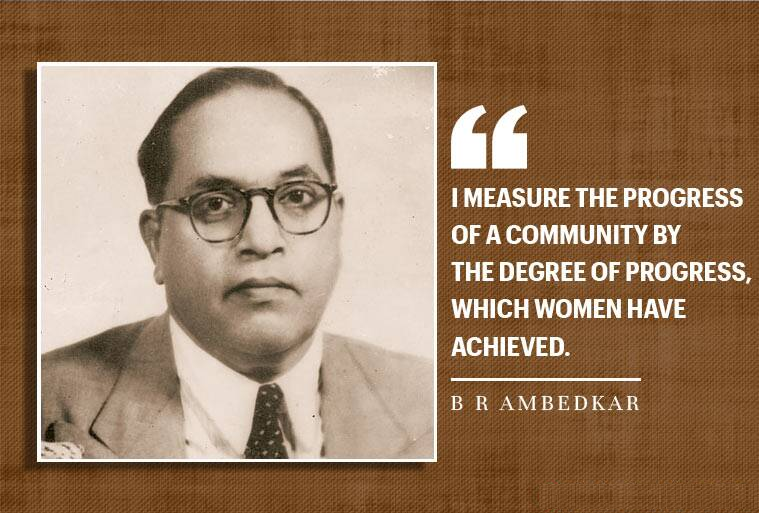Indian History
Birth Anniversary of B R Ambedkar
- 14 Apr 2022
- 5 min read
For Prelims: Dr. B R Ambedkar, Round Table Conferences.
For Mains: Important Personalities, Modern Indian History.
Why in News?
The nation celebrated the 131st birth anniversary of B R Ambedkar on 14th April 2022.
- Dr. Ambedkar was a social reformer, jurist, economist, author, polyglot (knowing or using several languages) orator, a scholar, and thinker of comparative religions.
What are the Key Points?
- Birth:
- Babasaheb Dr. Bhimrao Ambedkar was born in 1891 in Mhow, Central Province (now Madhya Pradesh).
- Brief Profile:
- He is known as the Father of the Indian Constitution and was India's first Law Minister.
- He was the Chairman of the Drafting Committee for the new Constitution.
- He was a well-known statesman who fought for the rights of the Dalits and other socially backward classes.
- Contributions:
- He led the Mahad Satyagraha in March 1927 against Hindus who were opposing the decision of the Municipal Board.
- In 1926, the Municipal Board of Mahad (Maharashtra) passed an order to throw open the tank to all communities. Earlier, the untouchables were not allowed to use water from the Mahad tank.
- He participated in all three Round Table Conferences.
- In 1932, Dr. Ambedkar signed the Poona pact with Mahatma Gandhi, which abandoned the idea of separate electorates for the depressed classes (Communal Award).
- However, the seats reserved for the depressed classes were increased from 71 to 147 in provincial legislatures and to 18% of the total in the Central Legislature.
- His ideas before the Hilton Young Commission served as the foundation of the Reserve Bank of India (RBI).
- He led the Mahad Satyagraha in March 1927 against Hindus who were opposing the decision of the Municipal Board.
- Election and Designation:
- In 1936, he was elected to the Bombay Legislative Assembly as a legislator (MLA).
- He was appointed to the Executive Council of Viceroy as a Labour member in 1942.
- In 1947, Dr. Ambedkar accepted PM Nehru's invitation to become Minister of Law in the first Cabinet of independent India.
- Shift to Buddhism:
- He resigned from the cabinet in 1951, over differences on the Hindu Code Bill.
- He converted to Buddhism. He died on 6th December 1956 (Mahaparinirvan Diwas).
- Chaitya Bhoomi is a memorial to B R Ambedkar, located in Mumbai.
- He was awarded India’s highest civilian honour the Bharat Ratna in 1990.
- Important Works:
- Journals:
- Mooknayak (1920)
- Bahishkrit Bharat (1927)
- Samatha (1929)
- Janata (1930)
- Books:
- Annihilation of Caste
- Buddha or Karl Marx
- The Untouchable: Who are They and Why They Have Become Untouchables
- Buddha and His Dhamma
- The Rise and Fall of Hindu Women
- Organisations:
- Bahishkrit Hitkarini Sabha (1923)
- Independent Labor Party (1936)
- Scheduled Castes Federation (1942)
- Journals:
- Relevance of Ambedkar in Present Times:
- Caste-based inequality in India still persists. While Dalits have acquired a political identity through reservation and forming their own political parties, they lack behind in social dimensions (health and education) and economic dimension.
- There has been a rise of communal polarization and communalization of politics. It is necessary that Ambedkar's vision of constitutional morality must supersede religious morality to avoid permanent damage to the Indian Constitution.
What were Round Table Conferences?
- First Round Table Conference: It was held in London on 12th November, 1930 but the Congress did not participate in it.
- In March 1931, Mahatma Gandhi and Lord Irwin (Viceroy of India 1926-31) entered into a Pact, called Gandhi-Irwin Pact, by which the Congress called off the Civil Disobedience Movement and agreed to participate in the Round Table Conference.
- Second Round Table Conference: It was held in London on the 7th of September, 1931.
- Third Round Table Conference: It was held in London on the 17th of November, 1932 to consider the reports of various sub-committees appointed from time to time. It ultimately led to the passage of the Govt. of India Act, 1935.
- Congress did not participate as most of the leaders were in jail.
UPSC Civil Services Examination Previous Year Questions
Q. Which of the following parties were established by Dr. B. R. Ambedkar? (2012)
- The Peasants and Workers Party of India
- All India Scheduled Castes Federation
- The Independent Labour Party
Select the correct answer using the codes given below:
A. 1 and 2 only
B. 2 and 3 only
C. 1 and 3 only
D. 1, 2 and 3
Ans: (B)





